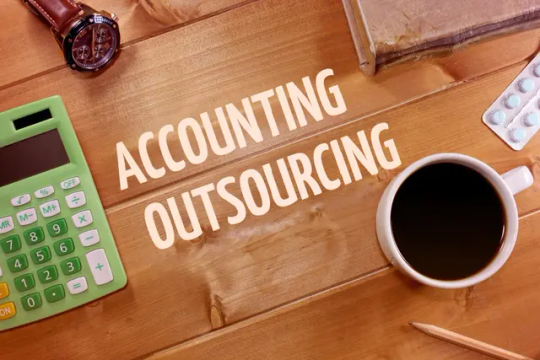#auditing&accounting
Explore tagged Tumblr posts
Text

#itrfiling#gstindia#charteredhelp#gst#gstregistration#auditing&accounting#incometaxreturns#ca#accounting#charteredaccountant
0 notes
Text
Hour after hour, it went on, with a patience that at first terrified and then bored. It was the warfare of clerks, and it harried the enemy through many columns and files. Moist could read words that weren't there, but the clerks found the numbers that weren't there, or were there twice, or were there but going the wrong way. They didn't hurry. Peel away the lies, and the truth would emerge, naked and ashamed and with nowhere else to hide.
Terry Pratchett, Going Postal
#moist von lipwig#the clerks#going postal#discworld#terry pratchett#warfare#auditors#accountants#auditing#accounting#forensic accounting#finances#words#administration#numbers#math#embezzlement#patience#boredom#hurry#truth#lies#the warfare of clerks#nowhere to hide#a pune or play on words
210 notes
·
View notes
Text

December 1 - Warm Drink
#rottmnt#rise of the tmnt#turtle tots#rise fanart#in other words#im crawling out of the grave to attempt a daily doodle challenge#some days will be more of a sketch because i have finals and work audits and contracts and *sobs* but i'm gonna try to be active#i don't actually have a plan here#i'm just gonna draw december things every gosh darn day or die trying#i don't know what to tag this after being so quiet on this account for a few months#uhhh#thanks for looking at this ;u; ok bye <3#teidoodle#tei's Dec23
656 notes
·
View notes
Text
This fic is going to be either a runaway success or so niche as to be unreadably boring to anyone who isn't a fan of budget tracking
#the pov character is an OC. she's a government employee doing accounting work. audit preparation. this fic is just annoyed bureaucracy#Phoenix Babbles#star wars#accountant of theed
134 notes
·
View notes
Text
"you ever read fanfiction and there's something so absurdly specific that it must come from the author's real life experience." me when i write one of those fire lord zuko fics but instead of just saying "paperwork" i write full financial statements for different departments and act like thats normal to write in a fanfiction.
#cal.ibrations#zuko reads fn military-adjacent companies 10-ks#actually now i think about it does the fn have established accounting principles. they give me the vibe everyone is committing crazy fraud#zuko and establishing FNGAAP#zuko & bringing swords to an audit.
191 notes
·
View notes
Text
so obsessed with qimir in his Undercover Boss Era telling mae, "You know how [the Master] is, he collects people"
who are those people? they're all qimir in increasingly silly disguises:
Sneaky McSneakster the Spy? qimir wearing a trench coat & a fedora
Hackhack Stabbystab the Bounty Hunter? qimir wearing camo cargo pants & an american flag bandana
Craig From Accounting? qimir wearing glasses with the fake nose attached & a sweater-vest with no shirt underneath. just vest vest vest vest ARMS
#qimir to mae: bro the master says you GOTTA remember to submit your receipts to Craig From Accounting#daggers ARE a business expense & i - by which uhhh i mean the master - don't wanna get audited by the Space IRS again#the acolyte#qimir#star wars#star wars qimir
87 notes
·
View notes
Text
I just think that if you pay a subscription for a service it should be illegal to then have pop-ups asking you to pay for more stuff. I want to kill intuit with hammers
#this is about quickbooks#intuit most evil of companies#unfortunately if you want to have your accounting work with pretty much any other person#like accountants or tax people#you just....have to have intuit!#and every time I log in they're like WOUDL YOU LIKE TO PAY A MILLION DOLLARS TO HAVE US DO YOUR TAXES#no intuit I would not!#I have your stupid service so I can have smart humans do my taxes!#I guess I could personally do my accounting by hand#but....my god I would fuck up so much#the ONE year I did my own taxes I got audited lol#(this is not to scare people about doing their own taxes - if you have a normal ass job you can do it)#(my taxes are decently complicated)#(and pls use the government's new service instead of evil intuit's dark patterning)#lauren says things#anyway
64 notes
·
View notes
Text
The long sleep of capitalism’s watchdogs

There are only five more days left in my Kickstarter for the audiobook of The Bezzle, the sequel to Red Team Blues, narrated by @wilwheaton! You can pre-order the audiobook and ebook, DRM free, as well as the hardcover, signed or unsigned. There's also bundles with Red Team Blues in ebook, audio or paperback.

One of the weirdest aspect of end-stage capitalism is the collapse of auditing, the lynchpin of investing. Auditors – independent professionals who sign off on a company's finances – are the only way that investors can be sure they're not handing their money over to failing businesses run by crooks.
It's just not feasible for investors to talk to supply-chain partners and retailers and verify that a company's orders and costs are real. Investors can't walk into a company's bank and demand to see their account histories. Auditors – who are paid by companies, but work for themselves – are how investors avoid shoveling money into Ponzi-pits.
Attentive readers will have noticed that there is an intrinsic tension in an arrangement where someone is paid by a company to certify its honesty. The company gets to decide who its auditors are, and those auditors are dependent on the company for future business. To manage this conflict of interest, auditors swear fealty to a professional code of ethics, and are themselves overseen by professional boards with the power to issue fines and ban cheaters.
Enter monopolization. Over the past 40 years, the US government conducted a failed experiment in allowing companies to form monopolies on the theory that these would be "efficient." From Boeing to Facebook, Cigna to InBev, Warner to Microsoft, it has been a catastrophe. The American corporate landscape is dominated by vast, crumbling, ghastly companies whose bad products and worse corporate conduct are locked in a race to see who can attain the most depraved enshittification quickest.
The accounting profession is no exception. A decades-long incestuous orgy of mergers and acquisitions yielded up an accounting sector dominated by just four firms: EY, KPMG, PWC and Deloitte (the last holdout from the alphabetsoupification of corporate identity). Virtually every major company relies on one of these companies for auditing, but that's only a small part of corporate America's relationship with these tottering behemoths. The real action comes from "consulting."
Each of the Big Four accounting firms is also a corporate consultancy. Some of those consulting services are the normal work of corporate consultants – cookie cutter advice to fire workers and reduce product quality, as well as supplying dangerously defecting enterprise software. But you can get that from the overpaid enablers at McKinsey or BCG. The advantage of contracting with a Big Four accounting firm for consulting is that they can help you commit finance fraud.
Remember: if you're an executive greenlighting fraud, you mostly just want to be sure it's not discovered until after you've pocketed your bonus and moved on. After all, the pro-monopoly experiment was also an experiment in tolerating corporate crime. Executives who cheat their investors, workers and suppliers typically generate fines for their companies, while escaping any personal liability.
By buying your cheating advice from the same company that is paid to certify that you're not cheating, you greatly improve your chances of avoiding detection until you've blown town.
Which brings me to the idea of the "bezzle." This is John Kenneth Galbraith's term for "the weeks, months, or years that elapse between the commission of the crime and its discovery." This is the period in which both the criminal and the victim feel like they're better off. The crook has the victim's money, and the victim doesn't know it. The Bezzle is that interval when you're still assuming that FTX isn't lying to you about the crazy returns they're generating for your crypto. It's the period between you getting the shrinkwrapped box with a 90% discounted PS5 in it from a guy in an alley, and getting home and discovering that it's full of bricks and styrofoam.
Big Accounting is a factory for producing bezzles at scale. The game is rigged, and they are the riggers. When banks fail and need a public bailout, chances are those banks were recently certified as healthy by one of the Big Four, whose audited bank financials failed 800 re-audits between 2009-17:
https://pluralistic.net/2020/09/28/cyberwar-tactics/#aligned-incentives
The Big Four dispute this, of course. They claim to be models of probity, adhering to the strictest possible ethical standards. This would be a lot easier to believe if KPMG hadn't been caught bribing its regulators to help its staff cheat on ethics exams:
https://www.nysscpa.org/news/publications/the-trusted-professional/article/sec-probe-finds-kpmg-auditors-cheating-on-training-exams-061819
Likewise, it would be easier to believe if their consulting arms didn't keep getting caught advising their clients on how to cheat their auditing arms:
https://pluralistic.net/2023/05/09/dingo-babysitter/#maybe-the-dingos-ate-your-nan
Big Accounting is a very weird phenomenon, even by the standards of End-Stage Capitalism. It's an organized system of millionaire-on-billionaire violence, a rare instance of the very richest people getting scammed the hardest:
https://pluralistic.net/2021/06/04/aaronsw/#crooked-ref
The collapse of accounting is such an ominous and fractally weird phenomenon, it inspired me to write a series of hard-boiled forensic accountancy novels about a two-fisted auditor named Martin Hench, starting with last year's Red Team Blues (out in paperback next week!):
https://us.macmillan.com/books/9781250865854/redteamblues
The sequel to Red Team Blues is called (what else?) The Bezzle, and part of its ice-cold revenge plot involves a disillusioned EY auditor who can't bear to be part of the scam any longer:
https://www.kickstarter.com/projects/doctorow/the-bezzle-a-martin-hench-audiobook-amazon-wont-sell
The Hench stories span a 40-year period, and are a chronicle of decades of corporate decay. Accountancy is the perfect lens for understanding our modern fraud economy. After all, it was crooked accountants who gave us the S&L crisis:
https://scholarworks.umt.edu/cgi/viewcontent.cgi?article=10130&context=etd
Crooked auditors were at the center of the Great Financial Crisis, too:
https://francinemckenna.com/2009/12/07/they-werent-there-auditors-and-the-financial-crisis/
And of course, crooked auditors were behind the Enron fraud, a rare instance in which a fraud triggered a serious attempt to prevent future crimes, including the destruction of accounting giant Arthur Andersen. After Enron, Congress passed Sarbanes-Oxley (SOX), which created a new oversight board called the Public Company Accounting Oversight Board (PCAOB).
The PCAOB is a watchdog for watchdogs, charged with auditing the auditors and punishing the incompetent and corrupt among them. Writing for The American Prospect and the Revolving Door Project, Timi Iwayemi describes the long-running failure of the PCAOB to do its job:
https://prospect.org/power/2024-01-26-corporate-self-oversight/
For example: from 2003-2019, the PCAOB undertook only 18 enforcement cases – even though the PCAOB also detected more than 800 "seriously defective audits" by the Big Four. And those 18 cases were purely ornamental: the PCAOB issued a mere $6.5m in fines for all 18, even though they could have fined the accounting companies $1.6 billion:
https://www.pogo.org/investigations/how-an-agency-youve-never-heard-of-is-leaving-the-economy-at-risk
Few people are better on this subject than the investigative journalist Francine McKenna, who has just co-authored a major paper on the PCAOB:
https://papers.ssrn.com/sol3/papers.cfm?abstract_id=4227295
The paper uses a new data set – documents disclosed in a 2019 criminal trial – to identify the structural forces that cause the PCAOB to be such a weak watchdog whose employees didn't merely fail to do their jobs, but actually criminally abetted the misdeeds of the companies they were supposed to be keeping honest.
They put the blame – indirectly – on the SEC. The PCAOB has three missions: protecting investors, keeping markets running smoothly, and ensuring that businesses can raise capital. These missions come into conflict. For example, declaring one of the Big Four auditors ineligible would throw markets into chaos, removing a quarter of the auditing capacity that all public firms rely on. The Big Four are the auditors for 99.7% of the S&P 500, and certify the books for the majority of all listed companies:
https://blog.auditanalytics.com/audit-fee-trends-of-sp-500/
For the first two decades of the PCAOB's existence, the SEC insisted that conflicts be resolved in ways that let the auditing firms commit fraud, because the alternative would be bad for the market.
So: rather than cultivating an adversarial relationship to the Big Four, the PCAOB effectively merged with them. Two of its board seats are reserved for accountants, and those two seats have been occupied by Big Four veterans almost without exception:
https://www.pogo.org/investigations/captured-financial-regulator-at-risk
It was no better on the SEC side. The Office of the Chief Accountant is the SEC's overseer for the PCAOB, and it, too, has operated with a revolving door between the Big Four and their watchdog (indeed, the Chief Accountant is the watchdog for the watchdog for the watchdogs!). Meanwhile, staffers from the Office of the Chief Accountant routinely rotated out of government service and into the Big Four.
This corrupt arrangement reached a crescendo in 2019, with the appointment of William Duhnke – formerly of Senator Richard Shelby's [R-AL] staff – took over as Chief Accountant. Under Duhnke's leadership, the already-toothless watchdog was first neutered, then euthanized. Duhnke fired all four heads of the PCAOB's main division and then left their seats vacant for 18 months. He slashed the agency's budget, "weakened inspection requirements and auditor independence policies, and disregarded obligations to hold Board meetings and publicize its agenda."
All that ended in 2021, when SEC chair Gary Gensler fired Duhnke and replaced him with Erica Williams, at the insistence of Bernie Sanders and Elizabeth Warren. Within a year, Williams had issued 42 enforcement actions, the largest number since 2017, levying over $11m in sanctions:
https://www.dlapiper.com/en/insights/publications/2023/01/pcaob-sets-aggressive-agenda-for-2023-what-to-expect-as-agency-enforcement-expands
She was just getting warmed up: last year, PCAOB collected $20m in fines, with five cases seeing fines in excess of $2m each, a record:
https://www.dlapiper.com/en/insights/publications/2024/01/pcaobs-enforcement-and-standard-setting-rev-up-what-to-expect-in-2024
Williams isn't shy about condemning the Big Four, publicly sounding the alarm that 40% of the 2022 audits the PCAOB reviewed were deficient, up from 34% in 2021 and 29% in 2020:
https://www.wsj.com/articles/we-audit-the-auditors-and-we-found-trouble-accountability-capital-markets-c5587f05
Under Williams, the PCAOB has enacted new, muscular rules on lead auditors' duties, and they're now consulting on a rule that will make audit inspections much faster, shortening the documentation period from 45 days to 14:
https://tax.thomsonreuters.com/news/pcaob-rulemaking-could-lead-to-more-timely-issuance-of-audit-inspection-reports/
Williams is no fire-breathing leftist. She's an alum of the SEC and a BigLaw firm, creating modest, obvious technical improvements to a key system that capitalism requires for its orderly functioning. Moreover, she is competent, able to craft regulations that are effective and enforceable. This has been a motif within the Biden administration:
https://pluralistic.net/2022/10/18/administrative-competence/#i-know-stuff
But though these improvements are decidedly moderate, they are grounded in a truly radical break from business-as-usual in the age of monopoly auditors. It's a transition from self-regulation to regulation. As @40_Years on Twitter so aptly put it: "Self regulation is to regulation as self-importance is to importance":
https://twitter.com/40_Years/status/1750025605465178260

Berliners: Otherland has added a second date (Jan 28 - THIS SUNDAY!) for my book-talk after the first one sold out - book now!

If you'd like an essay-formatted version of this post to read or share, here's a link to it on pluralistic.net, my surveillance-free, ad-free, tracker-free blog:
https://pluralistic.net/2024/01/26/noclar-war/#millionaire-on-billionaire-violence


Back the Kickstarter for the audiobook of The Bezzle here!

Image: Sam Valadi (modified) https://www.flickr.com/photos/132084522@N05/17086570218/
Disco Dan (modified)
https://www.flickr.com/photos/danhogbenspics/8318883471/
CC BY 2.0: https://creativecommons.org/licenses/by/2.0/
#pluralistic#big accounting#auditing#marty hench#martin hench#big four accountants#management consultants#corruption#millionaire on billionaire violence#long cons#the bezzle#conflicts of interest#revolving door#self-regulation#gaap#sox#sarbanes-oxley#too big to fail#too big to jail#audits#defective audits#Public Company Accounting Oversight Board#pcaob#sec#scholarship#Francine McKenna#William Duhnke#administrative competence#photocopier kickers#NOCLARs
67 notes
·
View notes
Text
(( hello hello !! Quick ooc post here.
We, at Keeping Up With The Jashlings, are looking for a Mind! I have a Google form linked here for anyone who would want to audition for the role.
Good luck to everyone interested! ))
#ooc post#cj mind#kuwtj rp#ask blog#keeping up with the jashlings#auditions open#rp account#kuwtj#harmoniashines#roleplay
16 notes
·
View notes
Text

#gstindia#charteredhelp#charteredaccountant#gstregistration#incometaxreturns#company registration#itrfiling#auditing&accounting
0 notes
Text

Guys drawing is hard
#Wip#my art#it was very funny watching the Schwartz fans come to my account from my last post#I love Ben duh he’s pookie#but as a josh groban account it was just humorous#also watch the afterparty for the second time this week (first time watching it was Thursday lmao)#very good show 10/10 Ben Schwartz has a beautiful voice#need him and josh to make a song tbh#I’m rambling#josh groban#ben schwartz#also audition went great y’all
22 notes
·
View notes
Text

Accounting outsourcing services in India
We provide the best Accounting outsourcing services in India and MAS is the top outsourcing and Bookkeeping service Companies in India Accounting Outsourcing Services in India | Accounting Services in India | Bookkeeping | Outsourcing Company
#accounting & bookkeeping services in india#businessregistration#audit#chartered accountant#foreign companies registration in india#income tax#auditor#taxation#ap management services
7 notes
·
View notes
Text
ᴀꜱᴀᴍɪ ʏᴀᴍᴀᴢᴀᴋɪ - ᴛʜᴇ ᴀᴜᴅɪᴛɪᴏɴ (2000, ᴛᴀᴋᴀꜱʜɪ ᴍɪɪᴋᴇ) ୧ ‧₊˚ 🥩🦴 ⋅

7 notes
·
View notes
Text

The Future of Justice: Navigating the Intersection of AI, Judges, and Human Oversight
One of the main benefits of AI in the justice system is its ability to analyze vast amounts of data and identify patterns that human judges may not notice. For example, the use of AI in the U.S. justice system has led to a significant reduction in the number of misjudgments, as AI-powered tools were able to identify potential biases in the data and make more accurate recommendations.
However, the use of AI in the justice system also raises significant concerns about the role of human judges and the need for oversight. As AI takes on an increasingly important role in decision-making, judges must find the balance between trusting AI and exercising their own judgement. This requires a deep understanding of the technology and its limitations, as well as the ability to critically evaluate the recommendations provided by AI.
The European Union's approach to AI in justice provides a valuable framework for other countries to follow. The EU's framework emphasizes the need for human oversight and accountability and recognizes that AI is a tool that should support judges, not replace them. This approach is reflected in the EU's General Data Protection Regulation (GDPR), which requires AI systems to be transparent, explainable and accountable.
The use of AI in the justice system also comes with its pitfalls. One of the biggest concerns is the possibility of bias in AI-generated recommendations. When AI is trained with skewed data, it can perpetuate and even reinforce existing biases, leading to unfair outcomes. For example, a study by the American Civil Liberties Union found that AI-powered facial recognition systems are more likely to misidentify people of color than white people.
To address these concerns, it is essential to develop and implement robust oversight mechanisms to ensure that AI systems are transparent, explainable and accountable. This includes conducting regular audits and testing of AI systems and providing clear guidelines and regulations for the use of AI in the justice system.
In addition to oversight mechanisms, it is also important to develop and implement education and training programs for judges and other justice professionals. This will enable them to understand the capabilities and limitations of AI, as well as the potential risks and challenges associated with its use. By providing judges with the necessary skills and knowledge, we can ensure that AI is used in a way that supports judges and enhances the fairness and accountability of the justice system.
Human Centric AI - Ethics, Regulation. and Safety (Vilnius University Faculty of Law, October 2024)
youtube
Friday, November 1, 2024
#ai#judges#human oversight#justice system#artificial intelligence#european union#general data protection#regulation#bias#transparency#accountability#explainability#audits#education#training#fairness#ai assisted writing#machine art#Youtube#conference
6 notes
·
View notes
Text
not to be insanely lame and talk about my job online but why are clients so stupid!! if i send something that says “please provide this invoice” and they send back a print out of an email with a dollar amount written on it so i say “returned, please provide the original invoice from the vendor” and then after a WEEK they send back the printed out email!!!!!! like that’s not what i want!!!!!!!!! I literally sent that exact thing back to you!!!!!!! bc it’s not an invoice!!!!!!!!
#not even an email from the fucking vendor!!!!#literally an internal email that’s like an account and routing number and then someone wrote on it in pen like ‘send 17000’#like sir in what WORLD!!!! is this audit evidence!!!!!!!
16 notes
·
View notes
Text
the urge to remake my rqg 177 zoscar animatic is SO fucking strong rn. actually the urge to make any kind of rqg animatic
#rqg#bluebird.txt#it's cuz i made one in like 2021 but now i can't find the file fucking ANYWHERE and it makes me sad bc i remember it#frame for frame#im so very very sad#i think i uploaded it to youtube but i took it and all my animatics down#bc i had to use my youtube to upload audition videos (which are private)#but i can't have private audition videos and then publicly some fan stuff hsfjrjgkdncns#i guess i could make an alternate account#but i think those videos are gone now :(#i also made a jmart animatic that looking back on it i am still proud that i finished it#RAH#and this week a the rockrose and the thistle zoscar animatic. i plan in my mind. THE URGES!!!!!
9 notes
·
View notes